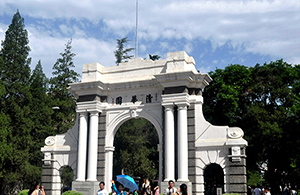Officials' property disclosure system should be more transparent to public
(China Daily) Updated: 2015-11-24 08:33
 |
|
A gavel in a court. [Photo/IC] |
A recent online post has claimed that Yang Jinsheng, Party chief of Tanba township in Wuchuan, South China's Guangdong province, owns properties, factories and hotels, which are estimated to be worth more than 268 million yuan ($43 million). Although Yang said he would resort to legal measures to respond to the accusations, a better property disclosure system for officials is what is most needed, says a column on scol.com.cn:
Yang claimed that the properties were given to him by his father. If this is true, then Yang is innocent of any wrongdoing as he has obtained the properties legally. If he is lying, a deeper investigation needs to be conducted to find out whether any corruption is involved. The local disciplinary agency has said that they are already involved and the truth will be revealed shortly.
However, the incident is just one of several cases in the past years, in which officials have aroused people's suspicions because of the property they own. Some have proved to be innocent of any corruption, while others have not.
In all these cases, the local disciplinary agencies did not take any action until the rumors of corruption became rampant online. In other words, it was only under the pressure of public opinion that disciplinary staff took action, although it is their job to find corruption clues and investigate.
So the questions become: When an official owns properties that far exceed his or her income, should that be considered a clue and should disciplinary staff investigate? Further, is such an official obliged to prove his or her innocence?
Those questions remain unanswered. In practice, disciplinary agencies seldom conduct any investigations unless people post online the properties owned by officials, and people criticize the disciplinary staff for dragging their feet. The disciplinary staff in turn always find an excuse and say they are never off a case.
The present case once again highlights the importance of improving the property disclosure system for officials. Currently government and Party officials beyond the vice-city level are required to report their properties to higher authorities; that system can be improved in at least two aspects.
First, the regulation needs to be expanded to apply to lower-level officials. In Yang's case, he is at the bottom level of State power yet he owns such a fortune in property. There are many more low-level officials who could have derived their property through graft.
Second, the property owned by officials should be fully disclosed to the public, not just the higher authorities. It is difficult for the higher authorities to know whether the information provided by officials is true unless it is open to all. Only when power is in sunshine will corruption be rooted out.
- New infrastructure bank to take a hard line on corruption
- Stern eye cast on low-level corruption
- CPC pledges no pause in war against corruption
- Officers in probe over corruption
- Anti-corruption among top buzzwords for Chinese in 2014
- Chinese say corruption among officials is No 1 problem
- Fall of governor adds to hopes for end of high-level corruption











